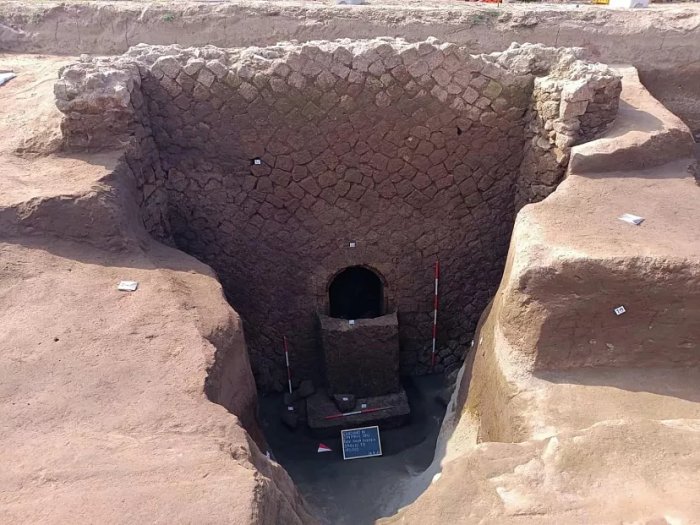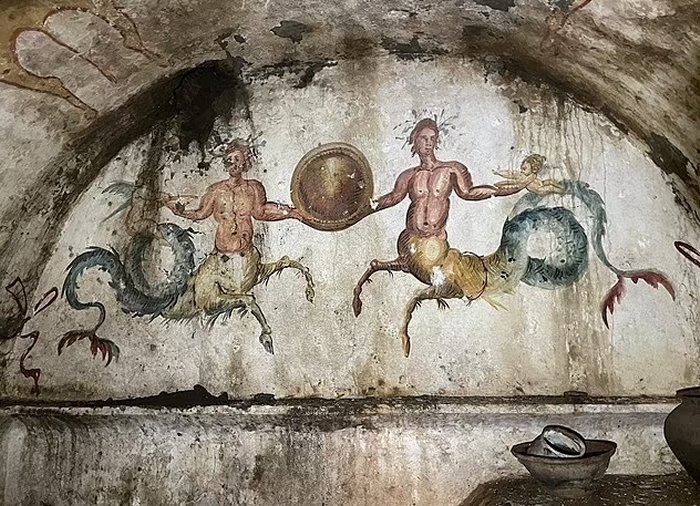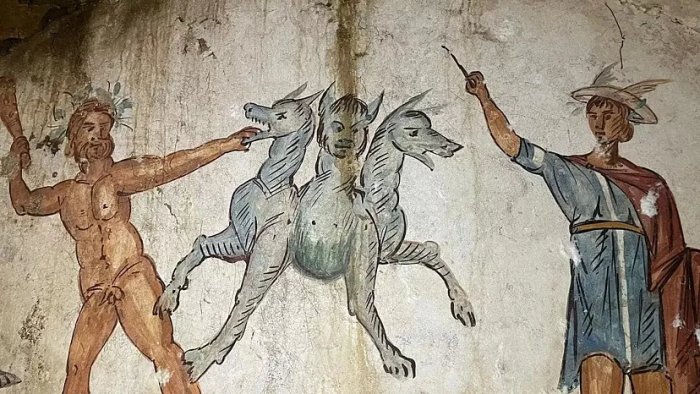Remarkably Well-Preserved 2,000-Year-Old ‘Tomb Of Cerberus’ With Amazing Frescoes Discovered In Italy
Archaeologists in Italy could hardly believe their eyes when they opened a mysterious ancient chamber tomb in the municipality of Giugliano in Campania, near Naples.

The tomb was sealed with a tuff slab, a light, porous rock created out of volcanic ash and other sediments.
Scientists say the chamber, dating back approximately 2,000 years to the Republican and Imperial Roman ages, was discovered after archaeologists spotted a wall that had been built using an ancient Roman construction technique known as opus incertum.
Inside the remarkably well-preserved chamber tomb, scientists marveled at the amazing frescoes adorning its walls.
“The tomb has frescoed ceilings and walls in perfect condition, with mythological scenes that go all around the room and figurative representations among which, a three-headed dog stands out,” said Mariano Nuzzo, the superintendent of Archaeology, Fine Arts and Landscape for the Naples metropolitan area.

“Three painted klìnai , an altar with vessels for libations, the deceased still placed on the funeral beds with rich objects – complete the picture of a discovery which, in this area, is unprecedented.”
The frescoes depicted Cerberus, a famous monster in Greek mythology. Often described as a giant three-headed dog, Cerberus guards the gates of the Greek underworld, ensuring that no one escapes from the realm of Hades, the god of the dead and the king of the underworld.
The tomb has led to it being aptly dubbed the “Tomb of Cerberus.”

“The depicted scene portrays the culmination of Heracles’ twelve labours, during which he successfully captured Cerberus.
The tomb also contains depictions of mythological scenes featuring ichthyocentaurs, beings with the upper bodies of humans, the forelegs and lower anterior halves of horses, and fish-like tails,” Euro News reports.
“The excitement was enormous—the screams, the hugs, us, the workers—finding something like this doesn’t happen every day,” archaeologist Valentina Russo, who was present during the discovery, said.
“The emotion aroused by the privilege of such a discovery is indescribable.
The territory of Giugliano, after years of oblivion, is finally returning significant vestiges of its glorious past to be preserved and protected, thanks to a common effort,” Nuzzo added.
Full excavation of the chamber tomb is currently in progress, and archaeologists intend to explore the broader necropolis surrounding the tomb, too.